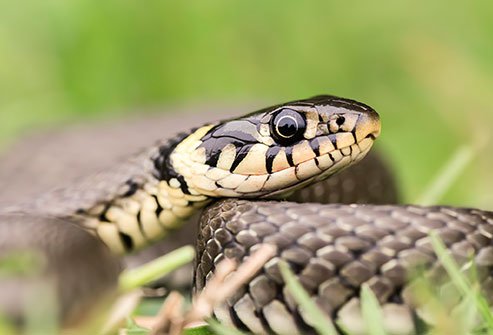Snakebites: Rising deaths heighten calls for local anti-venom drug production
The rising number of people dying from snakebites across the country has heightened the calls for local production of Anti-Snake Venom…

The rising number of people dying from snakebites across the country has heightened the calls for local production of Anti-Snake Venom (ASV) vaccines.
Reports from across major snakebite treatment centres indicate that the incidences of the attacks have continued to rise with many victims unable to survive.
Correspondents of the News Agency of Nigeria (NAN), who visited major snakebite treatment centres in Kaltungo, Gombe State, and Zamko in Langtang, Plateau State, found that the cases had risen with the farming season at its peak.
Worst hit are the farmers who clash with the snakes in the fields as well as nomads that move inside the forests with their cattle.
- Kano flags off vaccination against resurgence of polio
- Troops deployed in states as NEMA warehouse looted in Adamawa
NAN found that while some patients die in hospitals and specialist snakebite treatment centres, others die in the hands of herbalists.
Others also die at home while trying to manage the situation with relations.
Dr Abubakar Ballah, Chief Medical Director (CMD), Kaltungo Snakebite Treatment and Research Centre, told NAN that an average of 11 patients are received everyday.
The situation is the same in Zamko Comprehensive Medical Centre, a medical outpost of Jos University Teaching Hospital, and Bambur medical centre, Karim Lamido in Taraba, where even more scary figures are being reported.
Medics at the various centres blamed the rising number of death cases on the lack of ASV required for the treatment of bites from snakes in Nigeria.
Among such snakes are Carpet Vipers, Cobra and Puff Adder.
Dr Nandul Durfa, Managing Director, Echitab Study Group, the firm that supplies the ASV drugs to Nigeria, blamed the current acute shortage on the lack of supply.
He told NAN that the drugs are produced in Liverpool, U.K. and Costa Rica after which they are imported into Nigeria at an exorbitant cost in view of the tough and cumbersome processes involved.
According to him, the drug production process starts from catching, caging and transporting the live snakes from Nigeria to the countries where the ASV will be produced.
“When the live snakes are taken there, they will be killed and the venom used to produce the ASV drugs.
“The drugs are then sent to Nigeria when it is convenient for the producers to do so.
“Very often, we may have an urgent need for the drugs, but the producers also have their schedules and shall only attend to us when it is convenient for them.
“Currently, we are in a desperate situation and need the drugs, but we can’t stampede them. So, you see, we are clearly at their mercy. What it simply means is that our destiny is not in our hands – which is quite dangerous.
“Again, when the drugs eventually come, they are usually very costly – that shouldn’t even be a surprise in view of the cost of production.”
Durfa, a former CMD of University of Abuja Teaching Hospital, said that a vial of the ASV drug costs 59 British Pounds at production.
To ensure that the ASV drug is produced locally, he said his outfit applied for a kick-start of the process in 2006 and secured the approval of then President, Olusegun Obasanjo.
“Obasanjo approved that the project be funded from monies voted for the implementation of the Millennium Development Goals (MDGs).
The then health minister, Prof. Eyitambo Lambo, tried in vain to secure the support of the officials of the MDGs.
Durfa said that his team renewed the effort to produce the ASV drug locally few years ago by approaching the immediate past Federal Government.
He particularly regretted a recent situation where a female student in the University of Yola died of snakebite, and declared that such death and many others like that were “quite unnecessary”.
He appealed to the Federal Government to critically look into the need to produce the ASV drug locally to end the scourge of deaths from snakebite across the country. (NAN)
